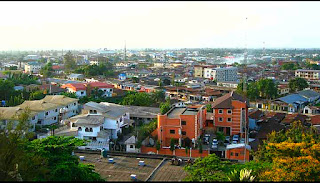Abeokuta North: complete guide
💡Table of Content
- Introduction
- Electricity
- Security
- Road and drainage system
- Weather population density and noise
- Access to water
- Cost of living
- Education
- Healthcare
- Conclusion
Introduction
Electricity
Security
Road and drainage system
Roads and drainage situations in Abeokuta-south local government are a topic of discussion among many people because they're not up to standard. The main concern is the condition of some roads within the district, which are either not accessible or are not in good condition, most roads are flooded during rainy seasons due to inadequate drainage systems in the area.
weather and population density and noise
Weather situations in Abeokuta-south local government are often unpredictable. This is because of the location of the town. It is surrounded by mountains, and this makes it difficult to predict weather patterns. For instance, when it rains in Abeokuta-south, it does not rain in other parts of the state. The rainy season usually starts around March and lasts till October. The rainy season can last for up to four months at a time or as short as two weeks. The most common weather pattern during this period is light rainfall with occasional thunderstorms.
The dry season usually starts around November and lasts until April with temperatures ranging from 20°C to 30°C during the day and 10°C to 15°C at night The population density of Abeokuta-south is 5,828 per square kilometer. The noise situation in the area is one of the worst in Nigeria.
access to water
The water supply in Abeokuta-south local government has been a long-standing issue. The people of this area have had to go through a lot of hardship to make sure that they get their basic needs. The many challenges faced by the people of this area are due to the lack of an adequate water supply system, the people living in this area have been struggling with these challenges for a long time, and they have not seen any improvements so far.
cost of living
Since there are many employment opportunities, the unemployment rate is low at 28% when compared to other parts of Nigeria. The cost of living in Abeokuta-south is among the lowest in Nigeria. The average monthly income of an individual is about ₦120,000 ($171)
Education
The educational situation in Abeokuta-south is not so good. Many factors contribute to this, including poor funding for schools and a lack of qualified teachers.
healthcare
In addition to this, there are just one government hospital and very few private hospitals which do not have enough beds for patients with critical conditions and it also lacks specialists in some fields of medicine like cardiology and neurology
conclusion
The population of Abeokuta-south is made up primarily of Yoruba people with some Igbo and Hausa people living in the area.











Comments
Post a Comment